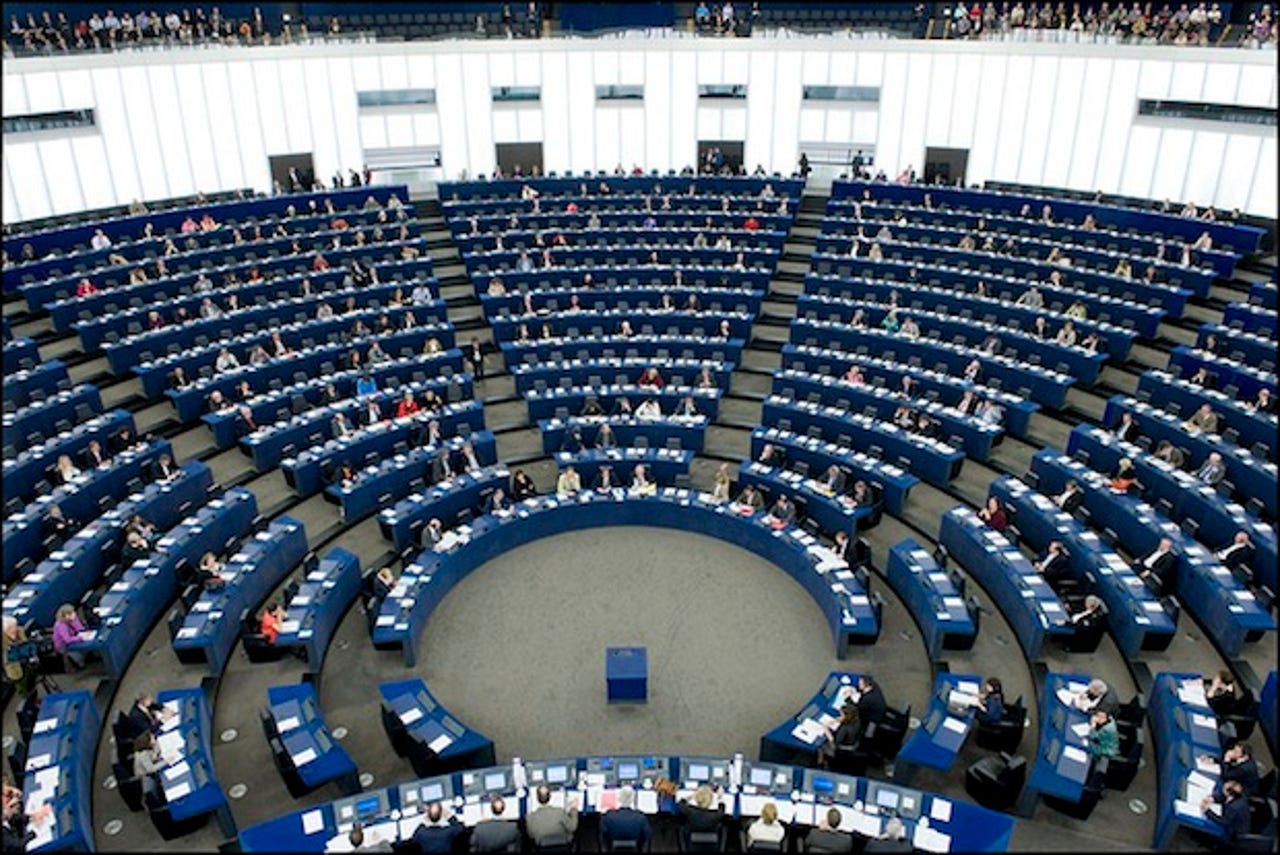EU anti-piracy law overhaul under attack; ISPs warn against site blocking, censorship

For those who thought ACTA, the controversial trade agreement, was dead — think again.
ACTA would have allowed EU and other global law enforcement agencies to impose new criminal sanctions on those who flout copyright and patent laws, but the agreement died in the European Parliament last year.
Now the spirit of ACTA may live on in the form of a new revised EU Directive.

A planned overhaul of the EU's intellectual property and copyright laws could pave the way for the implementation of new "technical measures" — the diplomatic way of saying anti-piracy enforcement, such as website blocking and ISP monitoring.
But an industry group representing more than 1,800 Internet and broadband providers, telcos and cellular networks in the 27 member-state bloc has criticized the EU's plans.
EuroISPA argues that the current 2004 Directive on the civil enforcement of intellectual property rights (IPRED), while controversial at the time, "as it stands offers a well-balanced and functioning framework to address in particular online intellectual property rights infringements."
But the group also served a stark warning that the fundamental rights of privacy and innovation would be "severely at risk if Internet intermediaries were required to undertake surveillance or to censor the Internet at the advantage of vested interests on an alleged 'self-regulatory' basis and outside judicial safeguards."
EuroISPA even cited a recent study to the Commission [PDF], giving one example of a common piracy trend in music sales, which found that "digital music piracy does not displace legal music purchases in digital format", and that "illegal music downloads have little or no effect on legal digital sales."
Any changes to the 2004 Directive "would be incompatible with fundamental right to the protection of personal data and freedom of communications which are essential for innovation and growth in the digital market," the group warns.
How 2004 changed the piracy landscape in Europe
The 2004 Directive first required EU member states to apply effective remedies and penalties against those engaged in copyright infringement.
It effectively gave copyright holders the civil power to go after those in court who infringed their rights by using peer-to-peer networks to pirate such content, for instance.
To add some context to this, the fears surrounding the initial 2004 Directive were vastly overblown. It was believed that it would criminalize the removal of content protection such as DRM, and align EU law with U.S. Digital Millennium Copyright Act (DMCA) legislation.
But it was substantially changed due to its seemingly draconian approach to anti-piracy, which had been increasing year-on-year, even with at the time snail-paced Internet connections.
Nine years is a long time for a law not to be updated, considering the changing landscape of the Web and always-on connectivity.
"Biased" consultation
A consultation on changes to the 2004 Directive, which closed on March 30, proved controversial.
The consultation was designed to garner opinion from the wider community on potential changes to the 2004 Directive, such as alterations to anti-piracy and copyright-related law in the modern age; however, some believed the process was flawed and swayed towards copyright holders.
Digital rights blogger Glyn Moody described it as "badly worded", "totally biased", and "clearly aimed at holders of intellectual monopolies who want to enforce them more strongly."
Meanwhile, Internet policy expert Monica Horten described the consultation as "seriously problematic." Writing on her blog, she warned that its substance "gives a sensation of déjà vu to anyone who followed the ACTA debate," and noted that a three-strike system and ISP policing of the Internet were all included, though "some of the code-words have changed."
Hello ACTA 2.0?
ACTA would have forced ISPs to have blocked access to websites that infringe copyright — or even worse — forced them into installing "mandatory network-level filtering" at ISP-level.
While these provisions were removed from ACTA, a new revision of the 2004 Directive "may be ordered to implement unspecified, disproportionate and possibly repressive technical measures in a blanket fashion against their customers," according to EuroISPA.
The European Union adopted an Internet freedom provision, stating that any measures taken by EU member states that affect a citizen's access to the Internet "must respect the fundamental rights and freedoms of citizens".
That considered, it also said that European citizens are entitled to a "fair and impartial procedure" before any Web-restricting measures can be imposed.
Any changes to the 2004 Directive will likely be monitored closely to ensure that ACTA provisions will not be implemented.
Though ACTA failed in the European Parliament, some fear that ACTA could creep back into Europe through the legislative back door.